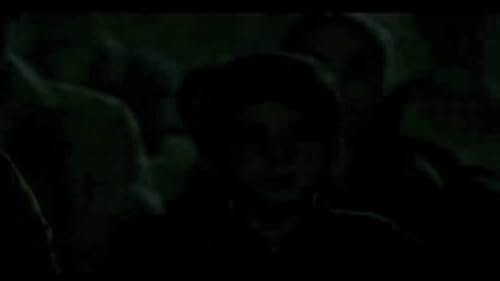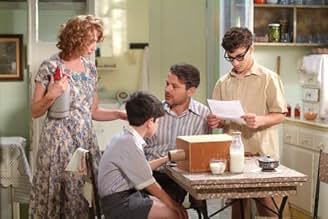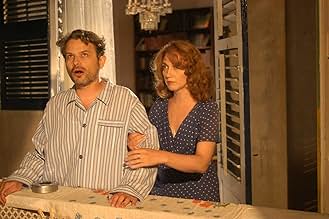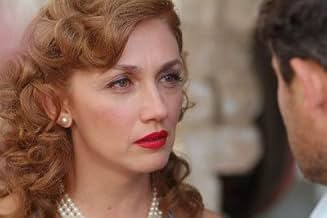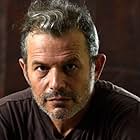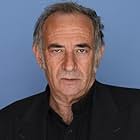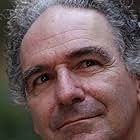At its heart, Dear Mr. Waldman deals with Holocaust survivor Moishe's relationship with two sons, the ten-year-old currently living with him in 1960's Tel Aviv, and the other who perished along with his mother in the camps. On the surface, the living son, Hilik (played by the adorable Ido Port), has the kind of childhood we remember with fond nostalgia. When he's not in with school (with its vivid teachers), he hangs out with a "bad influence" classmate amid the seamy but colorful inhabitants of Tel Aviv's perennially impoverished Florentine neighborhood, and watches Hollywood epics like Spartacus over and over again. But his idyll is spoiled by the ghosts of his father's first family, who in Hilik's nightmares take his father away from him.
The precarious balance tips when Moishe see a newspaper photo of President Kennedy with an adviser whose name is similar to that of his dead son. He is haunted by the absurd notion that this man might actually *be* his dead son, miraculously escaped to America and elevated to high office,and he soon plunges utterly into delusion. It is only with Hilik's help that he is able to break the chains of the past, and reconnect with the land of the living.
Mr. Peled is intimately acquainted with the themes in this movie, because he too had a father whose first wife and young son perished in the Holocaust, and as a son of survivors he too felt an obligation to try to compensate for the horrors his parents went through.
Although the movie deals with Holocaust survivors, it isn't heavy handed or depressing. Instead, the colorful external details of life in Tel Aviv in the 60's are used to set off the main characters' internal struggles.

